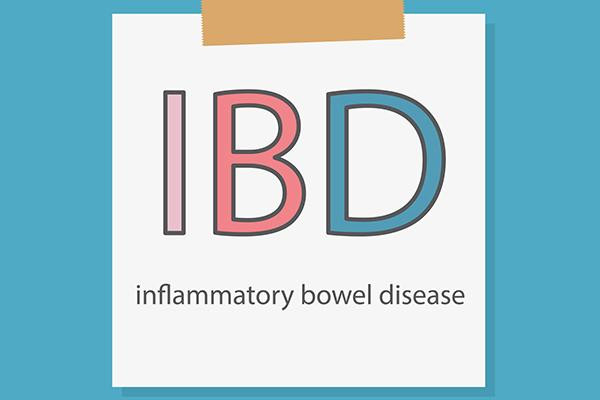
Can probiotics help calm inflammatory bowel disease?

Approximately three million Americans have inflammatory bowel disease (IBD). IBD is an umbrella term for Crohn’s disease and ulcerative colitis, illnesses marked by chronic or repeated bouts of inflammation in the digestive tract. Both types of IBD represent a complex interplay of genes, environment, and immune factors.
Current therapies for IBD suppress the immune system to reduce inflammation. But emerging research on the human microbiome may help scientists better understand and manage IBD. And some preliminary studies on cells, animals, and humans have investigated whether probiotics — which are sometimes called “good” bacteria — are beneficial for people with IBD.
The healthy microbiome: Building a barrier
The human intestinal microbiome is the vast community of trillions of helpful and harmful bacteria, viruses, fungi, and other microorganisms that inhabit our gut. Ideally, the lining of the gut acts as a barrier that prevents harmful bacteria and toxins from entering the bloodstream.
A healthy microbiome helps this lining block out harmful bacteria while enabling it to absorb nutrients. Beneficial bacteria in the microbiome promote a healthy, hospitable gut environment that limits inflammation and helps crowd out harmful bacteria.
Recent studies on human cells and in mice suggest that a healthy microbiome produces substances that
- nourish cells lining the colon, so that they form a tight barrier difficult for harmful bacteria to penetrate
- interact with immune cells in the gut, reducing inflammation
- prompt the gut lining to make mucus that acts as an additional barrier to harmful bacteria.
In animal studies, a healthy microbiome is essential to help build and maintain an effective barrier. Animals raised in the laboratory without a microbiome, or whose microbiome has been depleted by antibiotics, have intestinal linings that are easily damaged.
An unbalanced microbiome: Inflammation and damage
What happens if the microbiome doesn’t have a good balance of helpful and harmful bacteria? The gut lining may become increasingly permeable. That may allow potentially harmful bacteria and their toxins to cross into the intestinal tissue and then into the bloodstream, triggering inflammation that can damage the gut.
An imbalanced microbiome is known as dysbiosis. And the inflammatory cascade linked to dysbiosis is a hallmark of IBD.
Probiotics: More promise than evidence
Probiotics — live microorganisms in supplements or in fermented foods like kombucha, kefir, yogurt, and sauerkraut — have been proposed as therapies for IBD. The idea is that by eating beneficial bacteria we can restore and maintain a balanced microbiome, reduce inflammation, and improve the gut barrier. But what does the evidence say?
Thus far, no probiotic therapy is routinely prescribed for IBD. Small randomized studies have compared specific probiotics with standard immunosuppressive therapies for IBD. The studies measured IBD symptoms, remission rates, or quality of life. Results were mixed at best:
- Ulcerative colitis. Some studies suggest that certain bacterial strains, such as Bifidobacteria and Lactobacilli, are somewhat effective for ulcerative colitis, reducing symptoms, promoting remission, and improving quality of life. But these effects are modest compared to standard therapies, and probiotics have not shown enough benefit to be accepted in medical practice.
- Pouchitis. Some people with IBD may need surgery to remove the colon (large intestine). This can lead to inflammation in the remaining small intestine, which gets formed into a J-shaped pouch and attached to the anus. However, 25% to 45% of people who have a J-pouch later experience inflammation known as pouchitis. Several studies show that combining standard medication with a probiotic mix called VSL#3 effectively quells the symptoms and inflammation of pouchitis. VSL#3 contains eight strains of bacteria. It is used to treat chronic pouchitis, which is the only accepted use of probiotics in common practice for IBD.
- Crohn’s disease. Probiotics have not been studied as rigorously in Crohn’s disease as in ulcerative colitis. Most of the limited set of studies found that probiotics are no better than placebo in reducing symptoms or promoting remission.
Diet, fiber, and prebiotics: A role in IBD?
The makeup and activity of our microbiomes can be altered by diet. That’s true even if the foods you consume aren’t well-known probiotic stars like kombucha, yogurt, kefir, and other fermented foods.
Gut bacteria that break down dietary fiber are a cornerstone of a healthy microbiome. A high-fiber diet can boost the number of these bacteria, as well as their beneficial and anti-inflammatory effects.
Food ingredients that are not absorbed by the gut but are instead consumed by the gut microbiome are called prebiotics. We have limited — though promising — evidence supporting prebiotics for people with IBD. Currently, no specific prebiotic food or supplement is recommended for general use.
However, the Mediterranean diet, which encourages fiber-rich vegetables, whole grains, and legumes, may modestly reduce symptoms and markers of inflammation in IBD. While these effects are small and inconsistent, the Mediterranean diet improves overall health in people with or without IBD. Largely for this reason, the American Gastroenterology Association recommends it for people who have IBD.
The bottom line
Probiotics, and possibly even prebiotics, hold promise. But we don’t yet know how to harness their full potential for treating IBD. While current evidence suggests probiotics may one day be an effective way to help treat IBD, the complexity of the microbiome means that a one-size-fits-all approach is unlikely to work.
Many questions remain: Which strains of bacteria in the gut should we study? How do we determine the best cocktail of probiotics to reap maximum benefit? Given that everyone’s microbiome is different, is a personalized approach to probiotics the right strategy? How can we define ideal dosage and formulation of probiotics?
Delivery method (capsules, powders, foods), dosage, and duration of treatment all require more research. Until these questions are answered, probiotics and prebiotics remain complementary strategies in treating IBD alongside standard immunosuppressive therapies.
About the Authors

Jake Dockterman, MD, PhD, Contributor
Dr. Jake Dockterman is from Carlisle, MA and earned his bachelor’s degree in molecular and cellular biology from Harvard College. He completed his MD and PhD in immunology at Duke University, studying host-microbe interactions and mucosal … See Full Bio View all posts by Jake Dockterman, MD, PhD 
Loren Rabinowitz, MD, Contributor
Dr. Loren Rabinowitz is an instructor in medicine Beth Israel Deaconess Medical Center and Harvard Medical School, and an attending physician in the Inflammatory Bowel Disease Center at BIDMC. Her clinical research is focused on the … See Full Bio View all posts by Loren Rabinowitz, MD

Ever worry about your gambling?

Are online gambling and sports betting new to your area? Are gambling advertisements catching your eye? Have you noticed sports and news shows covering the spread? Recent changes in laws have made gambling widely accessible, and its popularity has soared.
Occasional bets are rarely an issue. But uncontrolled gambling can lead to financial, psychological, physical, and social consequences, some of which are extreme. Understanding whether gambling is becoming a problem in your life can help you head off the worst of these issues and refocus on having more meaning, happiness, and psychological richness in your life. Gambling screening is a good first step.
Can you screen yourself for problem gambling?
Yes. Screening yourself is easy. The Brief Biosocial Gambling Screen (note: automatic download) is a validated way to screen for gambling disorder. It has three yes-or-no questions. Ask yourself:
- During the past 12 months, have you become restless, irritable, or anxious when trying to stop/cut down on gambling?
- During the past 12 months, have you tried to keep your family or friends from knowing how much you gambled?
- During the past 12 months, did you have such financial trouble as a result of your gambling that you had to get help with living expenses from family, friends, or welfare?
What do your answers mean?
Answering yes to any one of these questions suggests that you are at higher risk for experiencing gambling disorder. Put simply, this is an addiction to gambling. Like other expressions of addiction, for gambling this includes loss of control, craving, and continuing despite bad consequences. Unique to gambling, it also often means chasing your losses.
A yes doesn’t mean that you are definitely experiencing a problem with gambling. But it might be valuable for you to seek a more in-depth assessment of your gambling behavior. To find an organization or person qualified to help, ask a health care provider, your local department of public health, or an advocacy group like the National Council on Problem Gambling.
Are you ready for change?
Your readiness to change a behavior matters when deciding the best first steps for making a change. If someone asks you whether you want to change your gambling, what would you say?
|
I never think about my gambling. |
Sometimes I think about gambling less. |
I have decided to gamble less. |
I am already trying to cut back on my gambling. |
I changed my gambling: I now do not gamble, or gamble less than before. |
Depending on your answer, you might seek out different solutions. What’s most important initially is choosing a solution that feels like the right fit for you.
What if you don’t feel ready to change? If you haven’t thought about your gambling or only occasionally think about changing your gambling, you might explore lower intensity actions. For example, you could
- read more about how gambling could create a problem for you
- listen to stories of those who have lived experience with gambling disorder.
If you are committed to making a change or are already trying to change, you might seek out more engaging resources and strategies to support those decisions, like attending self-help groups or participating in treatment.
Read on for more details on choices you might make.
What options for change are available if you want to continue gambling?
If you want to keep gambling in some way, you might want to stick to lower-risk gambling guidelines:
- gamble no more than 1% of household income
- gamble no more than four days per month
- avoid regularly gambling at more than two types of games, such as playing the lottery and betting on sports.
Other ways to reduce your risk of gambling harm include:
- Plan ahead and set your own personal limits.
- Keep your entertainment budget in mind if you decide to gamble.
- Consider leaving credit cards and debit cards at home and use cash instead.
- Schedule other activities directly after your gambling to create a time limit.
- Limit your use of alcohol and other drugs if you decide to gamble.
What are easy first steps toward reducing or stopping gambling?
If you’re just starting to think about change, consider learning more about gambling, problem gambling, and ways to change from
- blogs, like The BASIS
- books like Change Your Gambling, Change Your Life
- podcasts like After Gambling, All-In, and Fall In, which offer expert interviews, personal recovery stories, and more.
Some YouTube clips demystify gambling, such as how slot machines work, the limits of skill and knowledge in gambling, and how gambling can become an addiction. These sources might help you think about your own gambling in new ways, potentially identifying behaviors that you need to change.
What are some slightly more active steps toward change?
If you’re looking for a slightly more active approach, you can consider engaging in traditional self-help experiences such as helplines and chatlines or Gamblers Anonymous.
Another option is self-help workbooks. Your First Step to Change is a popular workbook that provides information about problem gambling, self-screening exercises for gambling and related conditions like anxiety and depression, and change exercises to get started. A clinical trial of this resource suggested that users were more likely than others to report having recently abstained from gambling.
Watch out for gambling misinformation
As you investigate options, keep in mind that the quality of information available can vary and may even include misinformation. Misinformation is incorrect or misleading information. Research suggests that some common types of gambling misinformation might reinforce harmful beliefs or risky behaviors.
For example, some gambling books, websites, and other resources exaggerate your likelihood of winning, highlight win and loss streaks as important (especially for chance-based games like slots), and suggest ways to change your luck to gain an edge. These misleading ideas can help you to believe you’re more likely to win than you actually are, and set you up for failure.
The bottom line
Taking a simple self-screening test can start you on a journey toward better gambling-related health. Keep in mind that change can take time and won’t necessarily be a straight path.
If you take a step toward change and then a step back, nothing is stopping you from taking a step forward again. Talking with a care provider and getting a comprehensive assessment can help you understand whether formal treatment for gambling is a promising option for you.
About the Author

Debi LaPlante, PhD, Contributor
Dr. Debi LaPlante is director of the division on addiction at the Cambridge Health Alliance, and an associate professor of psychiatry at Harvard Medical School. She joined the division in 2001 and is involved with its … See Full Bio View all posts by Debi LaPlante, PhD